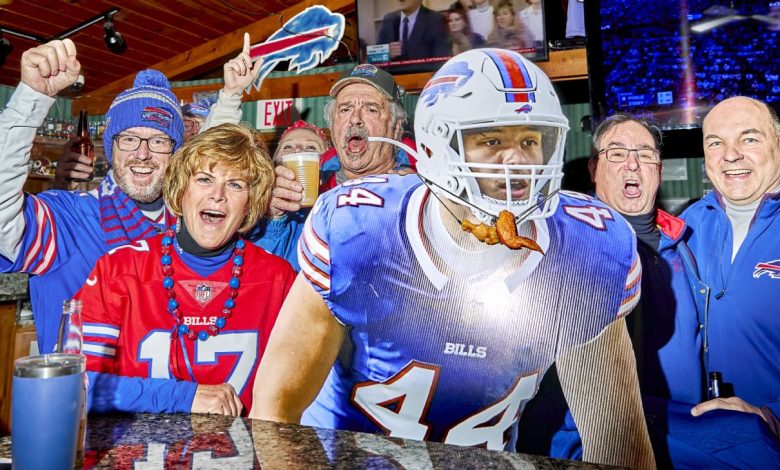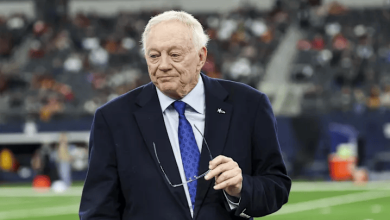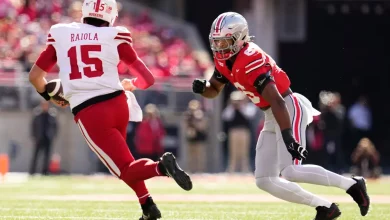Do NFL teams allow agents to influence their hiring of coaches? Why the league is concerned

In the NFL, coaching hires are among the most crucial decisions a team can make. The head coach is responsible for shaping the direction of the team, building a competitive roster, and fostering a winning culture. The importance of this role cannot be overstated, and as a result, the hiring process is often high-stakes and closely scrutinized. While most teams follow a set process when selecting a new head coach, there is growing concern within the league about the influence of agents in this decision-making process.
NFL teams have traditionally handled coaching hires with the aim of finding the best candidate for the job, based on experience, knowledge, leadership ability, and fit with the organization. However, in recent years, there have been rising concerns about how much influence agents—who represent players, coaches, and other staff—have in shaping a team’s coaching hires. With the increasing commercial power of agents and the networks they maintain, the issue has raised eyebrows across the NFL.
In this article, we will explore the role that agents play in NFL coaching hires, the potential benefits and risks of their influence, and why the league is becoming more concerned about this dynamic. We will also examine how the situation might evolve, and whether changes to the hiring process are on the horizon.
The Role of Agents in the NFL
Before delving into the specific issue of coaching hires, it is important to understand the general role of agents in the NFL. Typically, agents are hired to represent players during contract negotiations and to help them secure the best possible deals in terms of salary, bonuses, and other contractual matters. In addition, agents often assist with endorsement opportunities, public relations, and career management, allowing players to focus on their on-field performance.
While agents are most commonly associated with representing players, some agents also represent coaches. The difference in this case is that agents are responsible for negotiating contracts for coaches, often guiding them through the process of securing new opportunities. Coaches, like players, often rely on agents to help them negotiate their pay, duration of contracts, job responsibilities, and other aspects of their professional lives.
Over the years, the role of agents has expanded, and they now play a significant part in the NFL’s power dynamics. Not only do they represent players, but many agents also manage coaches’ careers, which has led to an increased level of influence over hiring decisions. Agents may have relationships with team owners, general managers, and executives, which can provide them with access to key decision-makers when coaching changes occur.
The Growing Influence of Agents in Coaching Hires
In the past, NFL coaching hires were typically made by team owners, general managers, and other key executives. While agents would assist coaches in negotiating their contracts, their influence on the decision-making process itself was usually minimal. However, as the NFL has grown in commercial size and influence, agents have taken on a more prominent role in various aspects of the business, including coaching hires.
A coach’s agent, particularly if they represent a high-profile or successful candidate, can play a significant role in influencing the hiring process. For example, agents often have strong relationships with owners, executives, and others within the team’s hierarchy. This network of relationships can make it easier for an agent to present a particular candidate to a team, even if that coach may not have been initially on the team’s radar.
Moreover, some agents are incredibly powerful within the NFL. For instance, agents representing high-profile coaches—such as Bill Belichick or Sean Payton—often carry considerable weight within the league. The ability to call in favors or offer recommendations can influence which coaches get interviews or even job offers.
How Agents Can Influence Coaching Hires
- Networking and Connections: Agents, especially those with years of experience in the industry, have built strong relationships with owners, general managers, and other key decision-makers within NFL organizations. These relationships can be leveraged when it comes time for a team to hire a new head coach. For example, if a team is looking for a new coach and has a candidate in mind, an agent with connections to that team may provide a valuable introduction or recommendation.
- Promoting Candidates: Agents can also promote their clients to teams, highlighting their candidate’s qualifications, past successes, and potential fit for the team. A skilled agent may be able to position a coach as the perfect solution to a team’s needs, even if that candidate may not have been a natural fit for the role initially.
- Leveraging Media Exposure: In today’s world of social media and media exposure, agents can use public relations to boost their clients’ profiles. By feeding positive stories, quotes, and background information to journalists, agents can help elevate the reputation of their client, making them more attractive to potential employers. This tactic is particularly effective in raising the profile of coaches who may not have received widespread attention but have significant potential.
- Negotiation Power: Once a team has identified a coach they are interested in, the agent’s negotiation skills come into play. Agents can use the competition for top coaching candidates as leverage, forcing teams to offer more lucrative contracts or additional benefits to secure a deal. This can lead to higher salaries, longer contracts, or better benefits for the coach, making the position more attractive.
Why the League Is Concerned About Agent Influence
While the influence of agents on coaching hires is not inherently negative, the NFL has raised concerns over the growing power that agents have in shaping coaching decisions. There are several key reasons for this unease:
- Conflicts of Interest: One of the primary concerns about agent involvement in coaching hires is the potential for conflicts of interest. Agents have a vested interest in securing the best possible deal for their clients, which may not always align with the team’s best interests. For example, an agent representing a coach may push for a hiring that benefits their client personally, rather than one that is best for the team. This raises questions about whether the coach is truly the best fit for the organization or whether their hiring is a result of powerful agent influence.
- Lack of Transparency: If agents are involved in coaching hires behind the scenes, it can lead to a lack of transparency in the hiring process. Team owners, general managers, and executives may be swayed by the agent’s recommendations or network, potentially overlooking other candidates who may be better suited for the position. This could result in teams hiring coaches based on external influence rather than an objective evaluation of the candidate’s qualifications.
- Coaching Opportunities for Minority Candidates: One of the most significant concerns about agent influence in coaching hires is its potential impact on diversity within the NFL. While the league has made strides in recent years to increase the number of minority coaches, there are still widespread concerns about the slow pace of progress. Some argue that agent influence, especially when it involves the same handful of influential agents, may contribute to the lack of diversity in coaching hires. If powerful agents are primarily representing a narrow pool of candidates, it may result in the same coaches being considered for positions time and time again, limiting opportunities for underrepresented candidates.
- Unpredictable Outcomes: Coaches are hired to bring success to teams, but the influence of agents could muddy the waters when it comes to making objective decisions. The NFL’s competitive nature means that each team’s coaching search is crucial to its long-term success. If agents push teams into making decisions that are not based on merit or fit, it could ultimately harm the team’s performance, setting back its chances of competing for championships.
Addressing the Concerns: Potential Solutions
To address the growing influence of agents in coaching hires, the NFL could consider implementing several measures to ensure a fair and transparent process. One possible solution would be to create clear and strict guidelines around the hiring process for head coaches. These rules could include a focus on comprehensive interviews, an evaluation of the candidate’s qualifications, and input from a wider array of individuals involved in the decision-making process.
Another solution would be to institute greater oversight of agent practices, particularly when it comes to coaching hires. The NFL Players Association (NFLPA) and other governing bodies could establish more stringent protocols for agents representing coaches, ensuring that their actions align with league standards and do not unduly influence the hiring process.
Finally, the NFL could work to promote more diverse candidates by incentivizing teams to consider a wider range of coaching prospects. While the league’s Rooney Rule has made progress in encouraging diversity in coaching hires, additional measures could be taken to further level the playing field.









